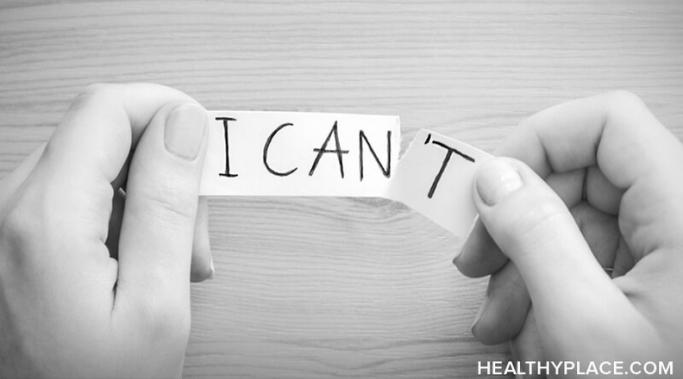Accountability matters when we're building self-esteem. We do not like to do things wrong. As children, many of us are taught that wrongdoing results in punishment. We learn to deny mistakes, to avoid the "bad" experiences that result from being blamed. Yet though we may learn to avoid culpability, we never stop making mistakes–they are a natural part of life. So, what happens when we shift away from denying mistakes and focus on using accountability as a tool to build self-esteem?
Self Respect
"Be yourself." "You do you." "Listen to your heart." The messages behind authenticity are beautiful ones: you are the center of your world and you are the only voice that matters. But while such phrases are inspiring, we live in a world that bombards us with beliefs, opinions and general emotional noise. This creates a dilemma that many of us struggle with–how do I think like myself when everyone and everything is trying to tell me how to think?
If I could talk to the teenage version of myself about authenticity, I know what I would say. I would tell her the very things she is afraid make her "weird" are actually the things that make her awesome. I would tell her to stop wasting energy being afraid of judgment, and to put that energy towards enjoying the things that make her happy.
Failure. It's not a nice word, is it? For many of us, we see failure as a glaring red stop sign. "Go no further," failure tells us, "You are not good enough to succeed." But did you know Walt Disney's first animation company was dissolved within six months? That J.K. Rowling's Harry Potter was rejected by 12 publishers? For both, failure was not a stopping point–they continued to try until they found success. How did they keep believing in themselves, instead of seeing failure as a message they couldn't succeed? They separated their work from their self-worth.
How do we define our personal values? In my post last week, "What Is Self-Worth", I explored the topic of self-worth. When we are living with low self-esteem, we often struggle to find self-worth. This comes from believing we are unable to succeed at the things we value personally. But where do these values come from? How do we decide what is important to us?
What is self-worth? How does self-worth show in our actions? I recently met two students who had both received a B+ on a test. While the first was practically jumping with joy, the second was more subdued. When I asked the latter if she felt the same excitement as her peer, she responded, "I can't stop thinking about how many questions I missed. I'm an idiot." Though both earned the same grade, one saw it as a sign of her worth, while the other saw it as a sign of worthlessness. This led me to think about, how do we define self-worth? What is it that makes one person believe they are worthy, while another that they are worthless?
Depression and low self-esteem can be closely connected, and boosting your self-esteem when they both appear can be difficult. When you live with low self-esteem for a long time, you may come to believe that you are inherently worthless, and this deep sense of worthlessness is a common symptom of depression. Conversely, if you’ve lived with depression for a long time, your self-esteem can be impacted. Perhaps when the motivation and energy are drained out of you, you lose confidence in your abilities and value. Boosting your self-esteem then can be particularly challenging.
A self-esteem setback can happen to anyone, even this therapist. Here's what to do to prevent and heal from a self-esteem setback
Self-care on a budget is possible. In fact, most acts of emotional self-care don't cost a thing. Self-care is simply the practice of treating yourself with enough respect that you honor and fulfill your own needs as they arise. Self-care on a budget is entirely possible.
Everyone needs to learn to respect themselves and stop letting others take advantage of us. Just the other day I noticed that I was about to let someone take advantage of me. It may not have been on purpose, but the gal at the checkout overcharged me for an item. I felt this strong sense of unfairness and asked her nicely to change the price. She apologized and fixed the mistake.
This may sound like a simple example, but the truth is, each time you stand up for what's fair, you respect yourself. When you stop allowing others to take advantage of you and respect yourself, your self-esteem improves.









